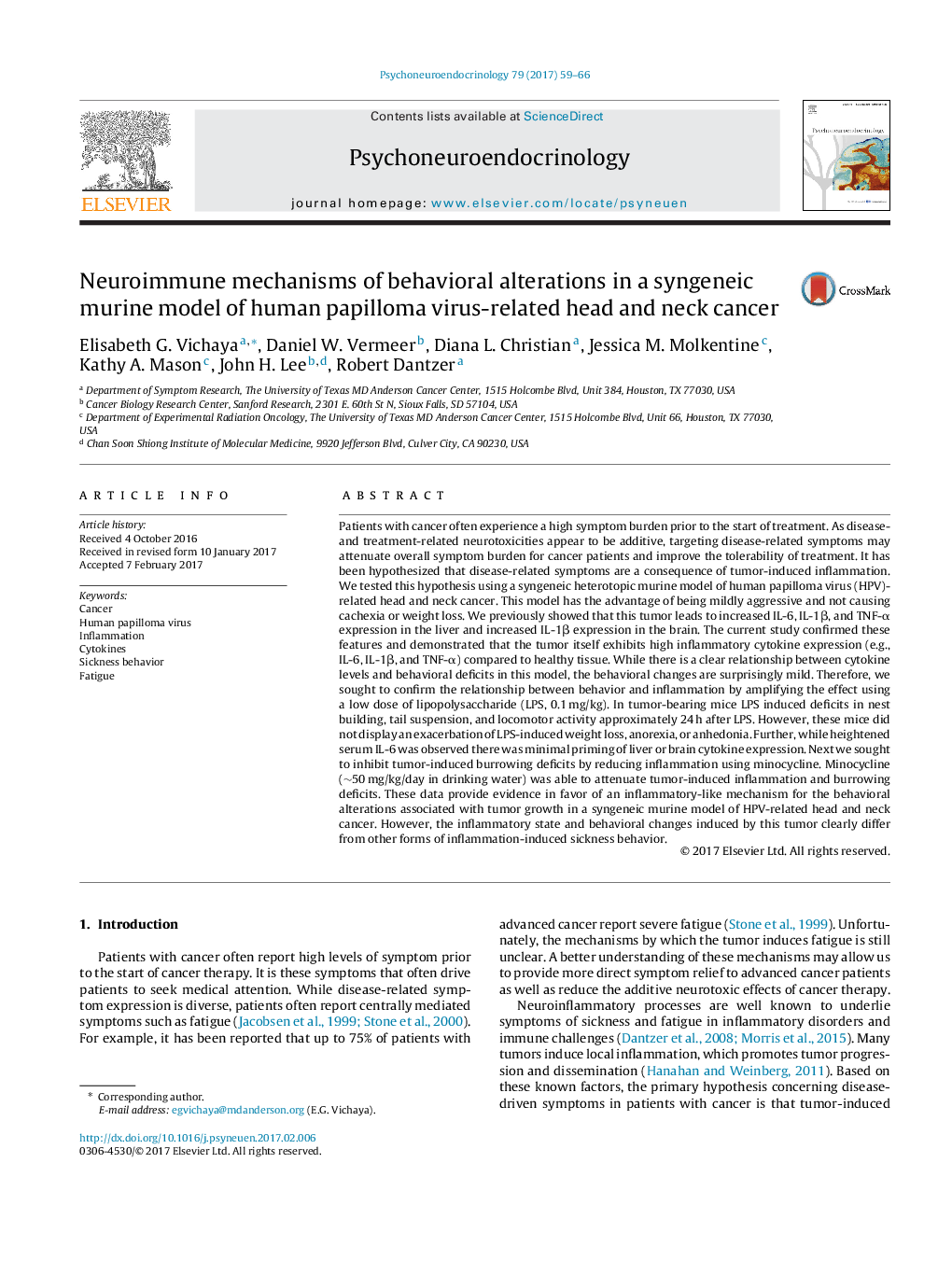| Article ID | Journal | Published Year | Pages | File Type |
|---|---|---|---|---|
| 4934529 | Psychoneuroendocrinology | 2017 | 8 Pages |
Abstract
Patients with cancer often experience a high symptom burden prior to the start of treatment. As disease- and treatment-related neurotoxicities appear to be additive, targeting disease-related symptoms may attenuate overall symptom burden for cancer patients and improve the tolerability of treatment. It has been hypothesized that disease-related symptoms are a consequence of tumor-induced inflammation. We tested this hypothesis using a syngeneic heterotopic murine model of human papilloma virus (HPV)-related head and neck cancer. This model has the advantage of being mildly aggressive and not causing cachexia or weight loss. We previously showed that this tumor leads to increased IL-6, IL-1β, and TNF-α expression in the liver and increased IL-1β expression in the brain. The current study confirmed these features and demonstrated that the tumor itself exhibits high inflammatory cytokine expression (e.g., IL-6, IL-1β, and TNF-α) compared to healthy tissue. While there is a clear relationship between cytokine levels and behavioral deficits in this model, the behavioral changes are surprisingly mild. Therefore, we sought to confirm the relationship between behavior and inflammation by amplifying the effect using a low dose of lipopolysaccharide (LPS, 0.1 mg/kg). In tumor-bearing mice LPS induced deficits in nest building, tail suspension, and locomotor activity approximately 24 h after LPS. However, these mice did not display an exacerbation of LPS-induced weight loss, anorexia, or anhedonia. Further, while heightened serum IL-6 was observed there was minimal priming of liver or brain cytokine expression. Next we sought to inhibit tumor-induced burrowing deficits by reducing inflammation using minocycline. Minocycline (â¼50 mg/kg/day in drinking water) was able to attenuate tumor-induced inflammation and burrowing deficits. These data provide evidence in favor of an inflammatory-like mechanism for the behavioral alterations associated with tumor growth in a syngeneic murine model of HPV-related head and neck cancer. However, the inflammatory state and behavioral changes induced by this tumor clearly differ from other forms of inflammation-induced sickness behavior.
Related Topics
Life Sciences
Biochemistry, Genetics and Molecular Biology
Endocrinology
Authors
Elisabeth G. Vichaya, Daniel W. Vermeer, Diana L. Christian, Jessica M. Molkentine, Kathy A. Mason, John H. Lee, Robert Dantzer,
